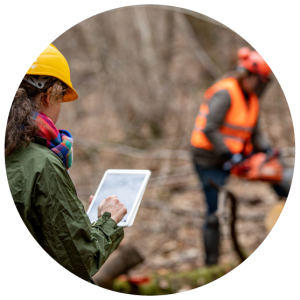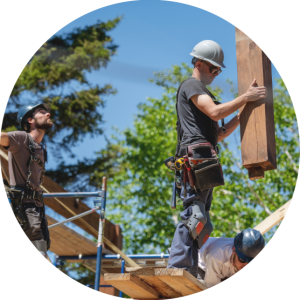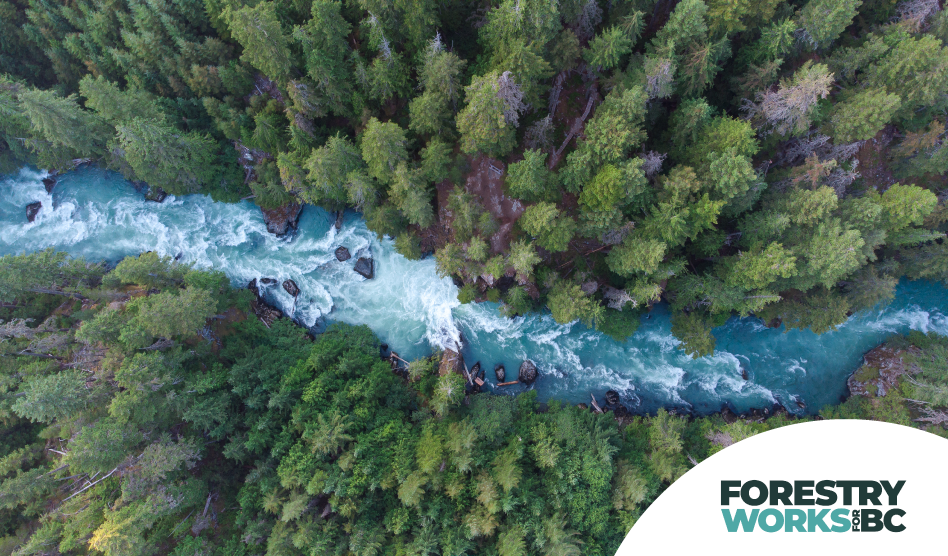Some online commenters have expressed the view that BC is imminently about to run out of trees due to logging (CBC News).
“…BC has treated it like a factory product where you can always increase production. I’ve constantly heard about “expanding the forest sector” for decades now. Well, here we are, with no trees left”.
“…the liquidation of B.C.’s once abundant forests…”
So, is it true that BC’s trees gone or almost gone? According to the BC Government, the area of BC is about 95 million hectares (a hectare is about the size of three soccer fields). Of that, approximately 56.2 million hectares is public forests. Of that, about 22.3 million hectares is designated as the Timber Harvesting Land Base, which appears likely to be reduced by at least another 2 million hectares Old growth definitions and values – Province of British Columbia.
 A fact of BC forestry is 63% of BC’s forests currently (in 2025) will not be harvested because they are already protected as parks, provincial parks, ecological reserves, conservancies, recreation areas, protected under the Environment and Land Use Act, National parks, and indigenous protected areas. Therefore, 37% is available to be commercially harvested (and by strict laws, must be managed for perpetual sustainability, growing new forests again and again). Of the area that is available, about 0.6% is harvested each year.
A fact of BC forestry is 63% of BC’s forests currently (in 2025) will not be harvested because they are already protected as parks, provincial parks, ecological reserves, conservancies, recreation areas, protected under the Environment and Land Use Act, National parks, and indigenous protected areas. Therefore, 37% is available to be commercially harvested (and by strict laws, must be managed for perpetual sustainability, growing new forests again and again). Of the area that is available, about 0.6% is harvested each year.
Some people equate harvesting (logging) forests with harm (they believe the rate of harvesting is too high, or that harvesting by humans is unnatural and unsustainable). On the other side of spectrum, there are other people who feel that jobs and the economy should be prioritized. For most people in the middle, there is a balanced approach.
 Most people who work in the sector (forest technicians, loggers, mill workers, silviculture workers, biomass energy workers, truck drivers, professional foresters, construction, etc.) feel that harvesting trees is acceptable if it is done in a responsible manner that respects and protects other values (such as biodiversity, water, wildlife, visual aesthetics, and so on). Most people understand that trees are a renewable resource, so why not respectfully put them to good use? For most people, forestry is not a dilemma of choosing the environment versus the economy. Good forestry is managing forests to achieve both.
Most people who work in the sector (forest technicians, loggers, mill workers, silviculture workers, biomass energy workers, truck drivers, professional foresters, construction, etc.) feel that harvesting trees is acceptable if it is done in a responsible manner that respects and protects other values (such as biodiversity, water, wildlife, visual aesthetics, and so on). Most people understand that trees are a renewable resource, so why not respectfully put them to good use? For most people, forestry is not a dilemma of choosing the environment versus the economy. Good forestry is managing forests to achieve both.
Most British Columbians live in urban areas and have a strong connection to forest management because:
- If we want a lower carbon future, then we should manage for healthy growing forests that absorb carbon dioxide and;
- Use more wood waste to create more bioenergy (and displace fossil fuels);
- Use more wood in buildings and everyday items such as furniture for long-term carbon storage, and more wood/paper products instead of plastic (which comes from fossil fuels).
- If we want reduced wildfire risks for our communities, etc., then we should manage forests to be resilient and coexist with fire.
- If we want better wildlife habitat and healthy ecosystems where fires have regularly occurred for thousands of years, then we should manage those forests so they don’t become overgrown and unhealthy.
The purpose of Forestry Works for BC is to encourage citizens and leaders in British Columbia be proud of forestry.
Please visit Forestry Works for BC – When Forestry Works, we all do better to learn more.

